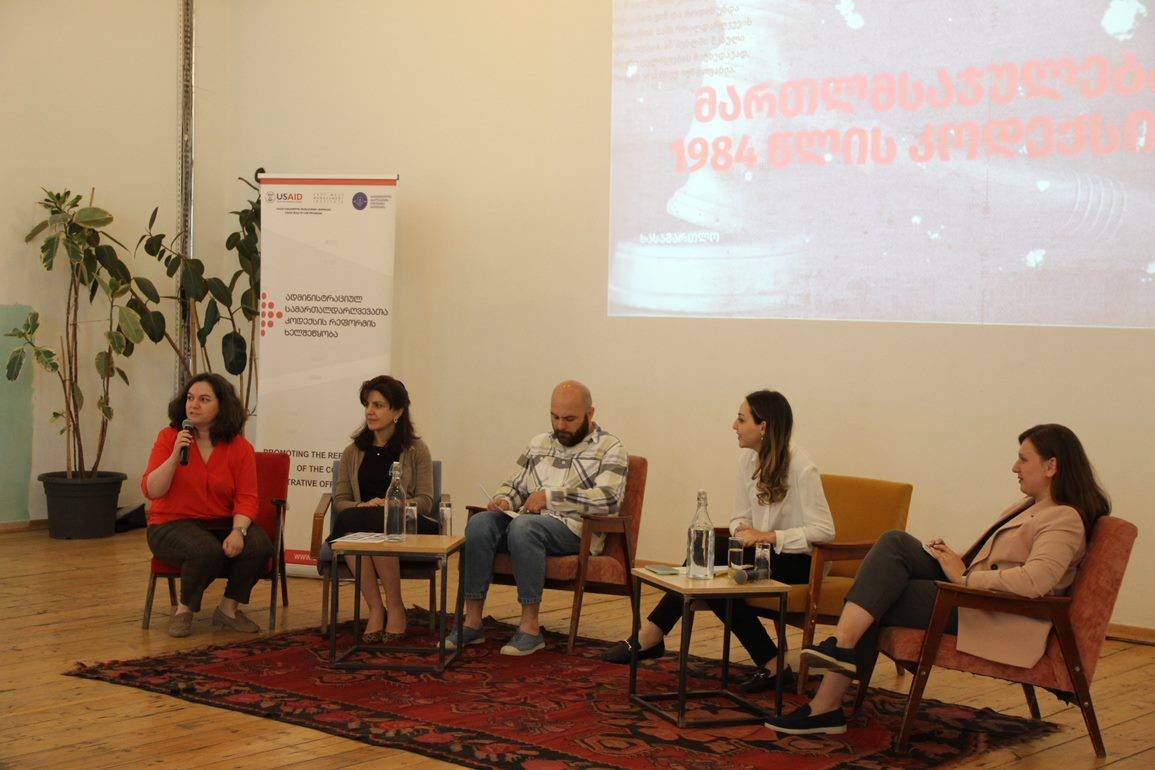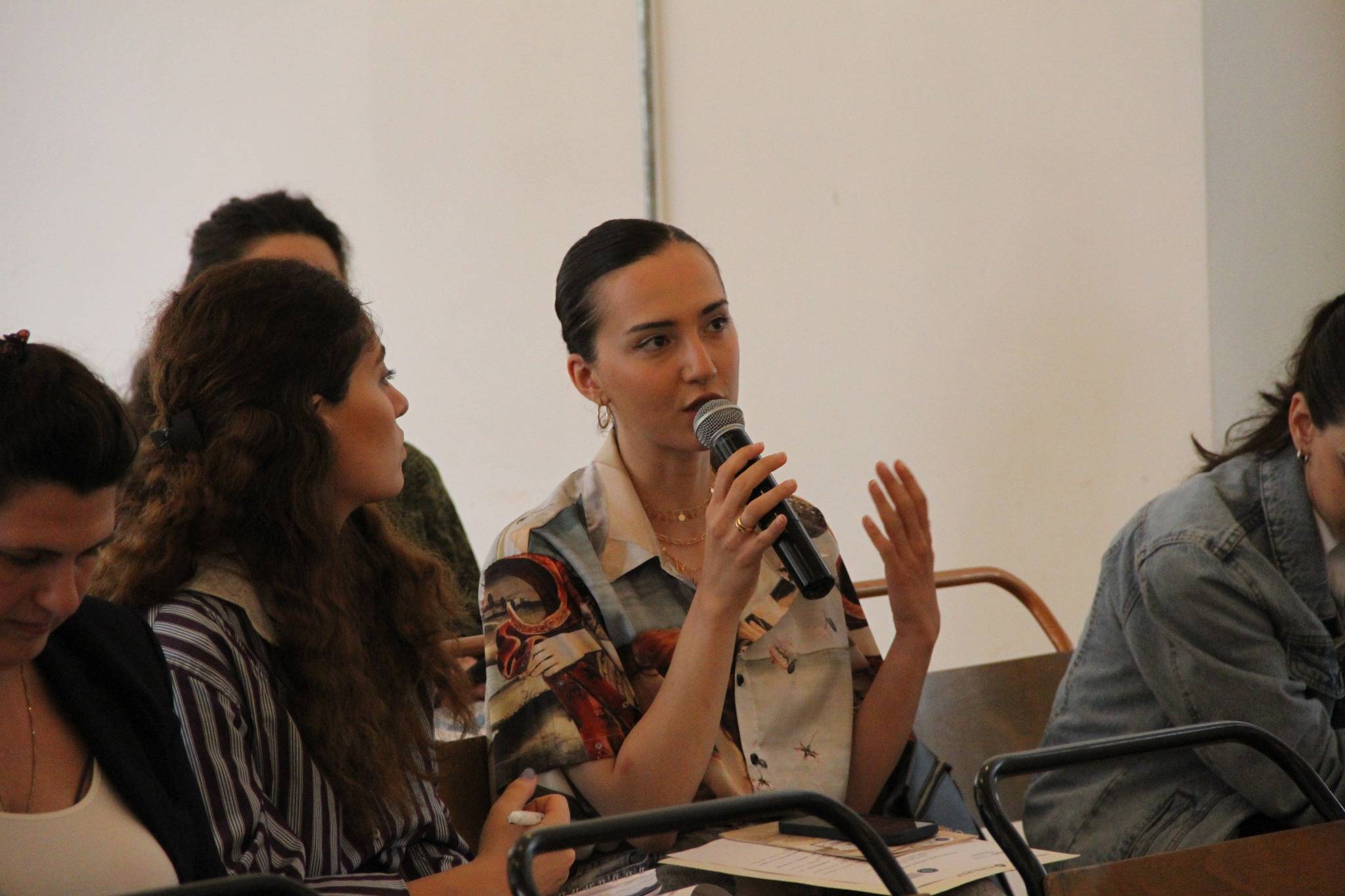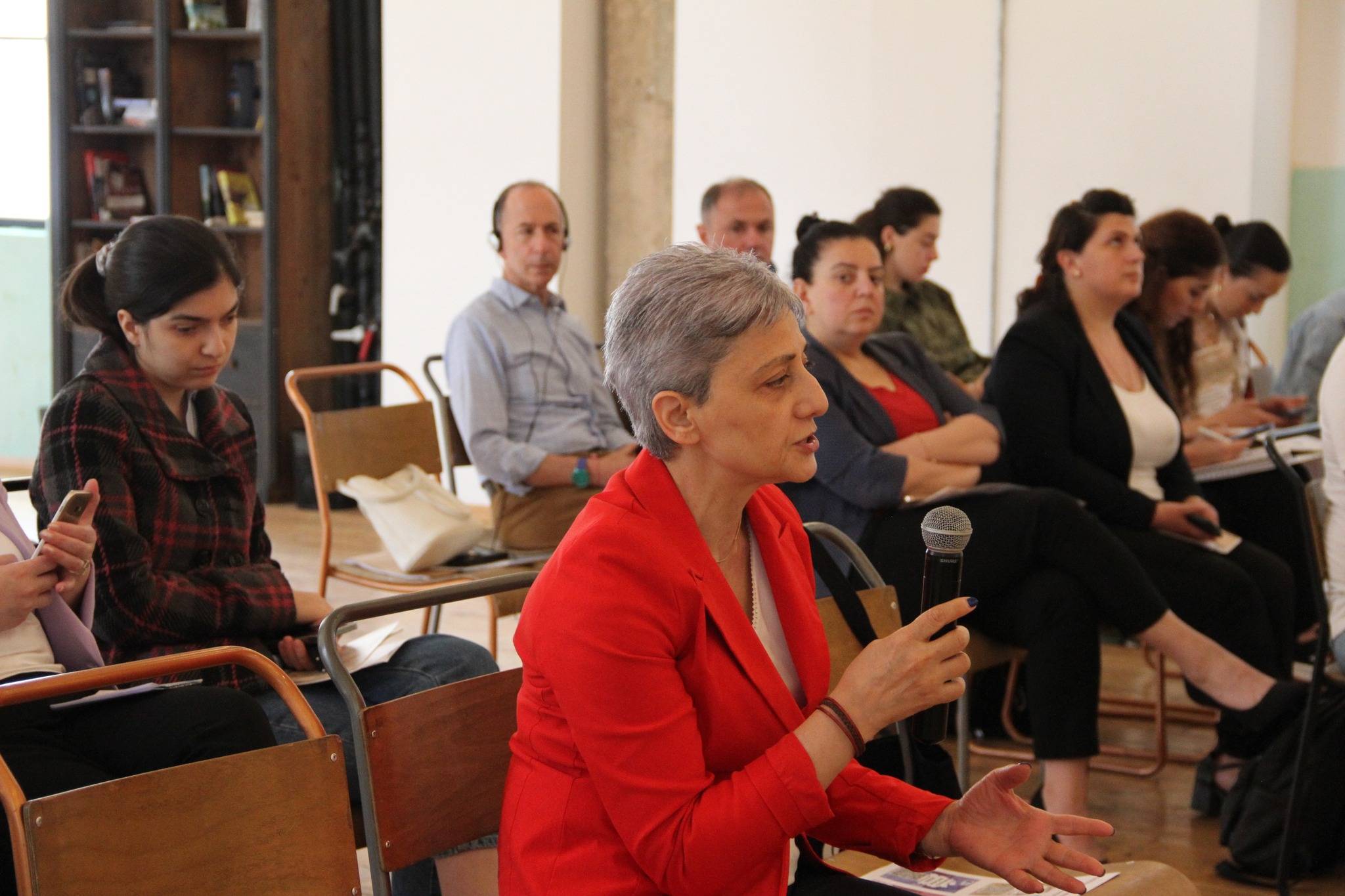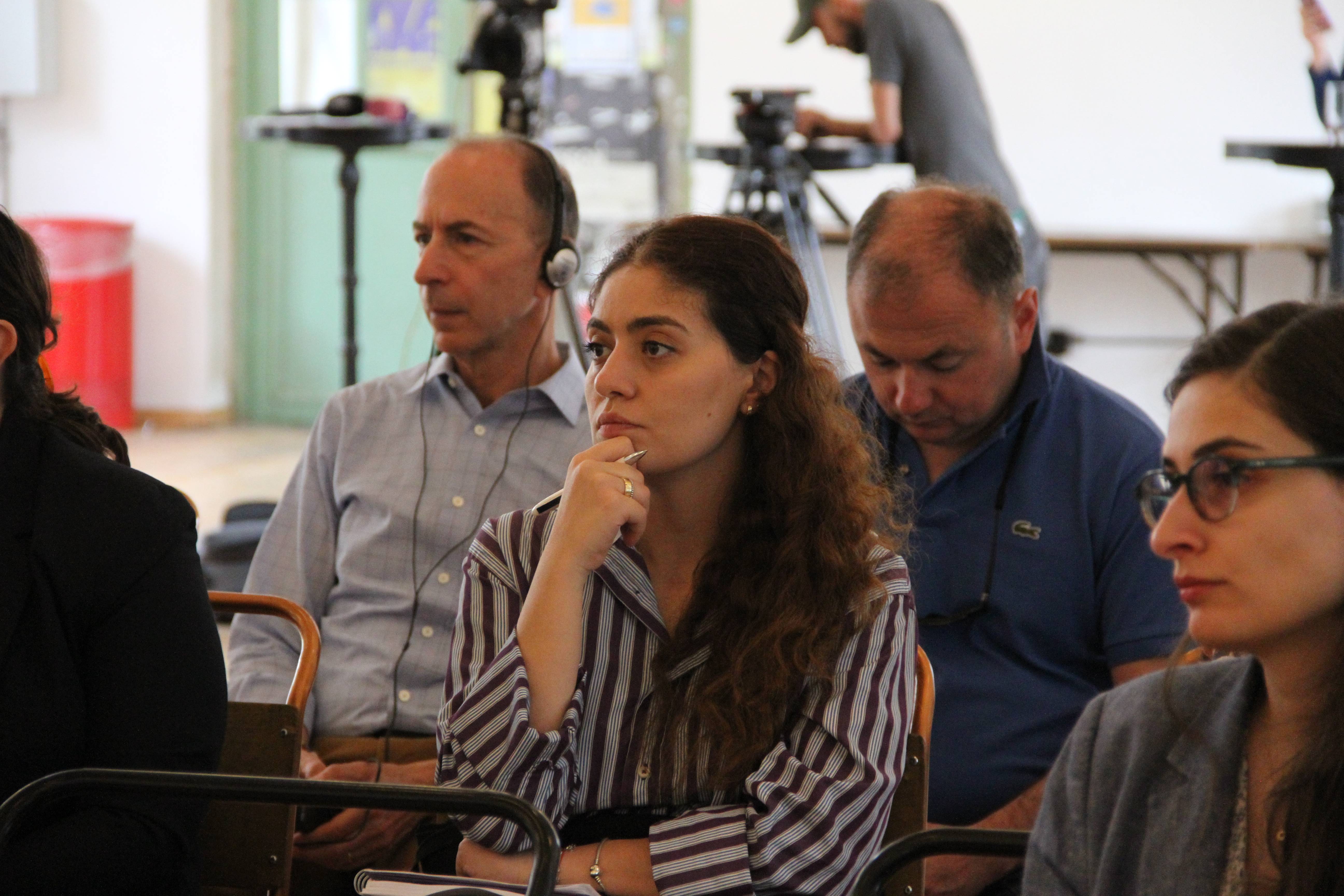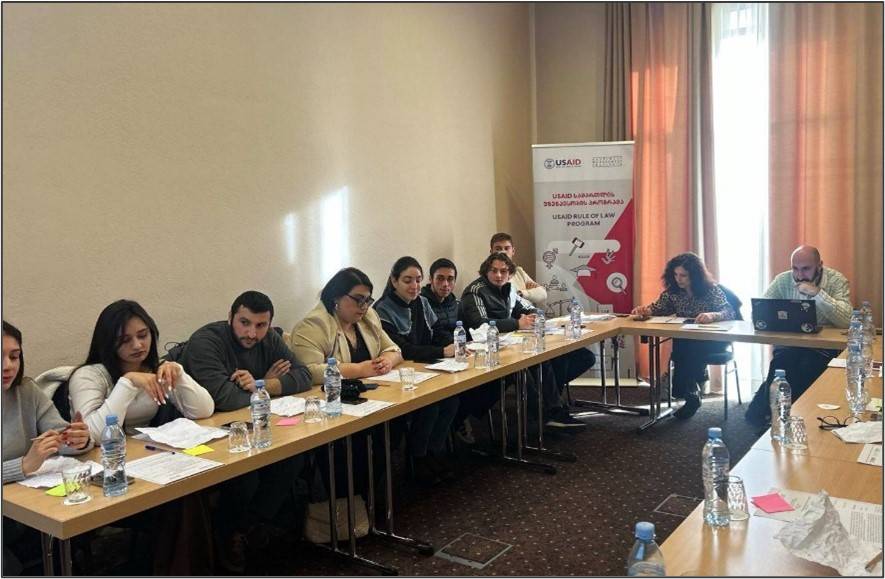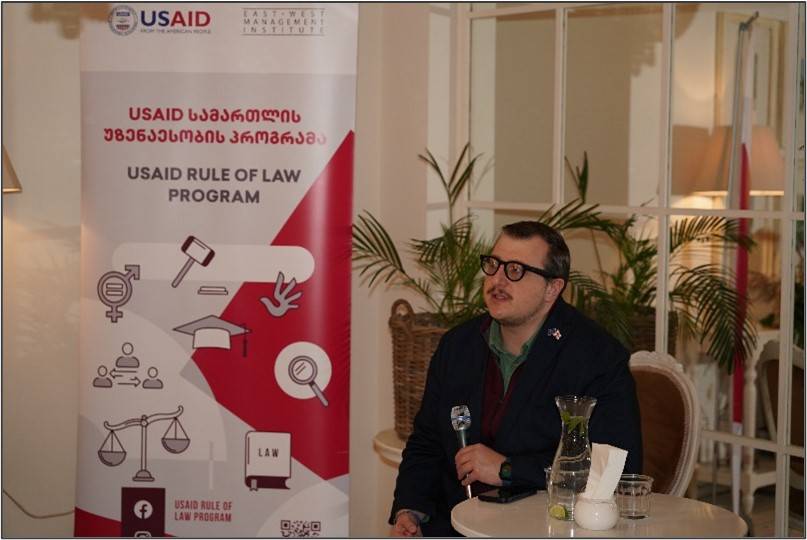Promoting Reform of the Code of Administrative Offenses
The USAID Rule of Law Program supports the efforts of the Georgian Young Lawyers’ Association (GYLA) to promote reform of Georgia’s Soviet-era Code of Administrative Offenses.
On June 21, 2023, GYLA organized a forum on "Justice Provided Under the 1984 Code."
The forum brought together 24 representatives from various sectors, including the media, academia, and international and local organizations. In her welcome remarks, Rusudan Tabatadze, Rule of Law Project Manager at the Democracy, Rights, and Governance Office at USAID/Caucasus, emphasized the role of civil society in advocating for reforms: “When there is a lack of will from the government to implement fundamental reforms, it is very important for the civil sector to be active in informing the public about the existing problems.”
During the forum, GYLA shared information on gaps in the existing legislation and current court practices. GYLA also identified existing challenges and new trends. For example, a court recently considered for the first time the opinions someone expressed online as an administrative offense.
Panelist Gvantsa Chkhaidze, Head of the Public Defender’s Office's (PDO’s) Department of Criminal Justice assessed the Code of Administrative Offenses from the perspective of the PDO:
“Throughout the years, the main recommendation of the Public Defender has been to change the Code. Both legislation and practice are flawed. Issues such as the presumption of innocence and burden of proof are not considered in the law” – noted Ms. Chkhaidze.
To reach the broader public, GYLA had partnered with Netgazeti, a media organization. A Netgazeti journalist monitored recent administrative trials and developed four articles showcasing problems with administrative proceedings.[1] During the forum, Givi Avaliani, a Netgazeti journalist, shared his observations with the audience.
The forum attendees had the opportunity to discuss issues related to practices of police and courts in administrative violation cases, such as obstructing the legal activity of defense (especially during mass arrests), the courts’ approach to placing the burden of proof on citizens, the length of administrative detention, the problem of determining the legality of a person's detention, and logistical issues.
